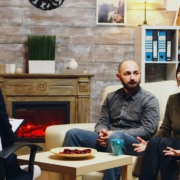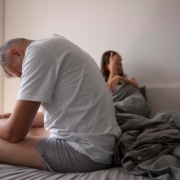Substance abuse remains a critical issue across the United States, and Ohio is no exception. With rising overdose rates and shifting patterns of drug use, understanding the landscape of substance abuse in Ohio is vital for both policymakers and healthcare providers. At Couples Rehab, we are committed to addressing these challenges head-on, providing effective treatment solutions tailored to the needs of individuals and families affected by addiction in Ohio. This article delves into Ohio-specific substance abuse statistics, highlighting overdose rates, treatment admissions, and regional prevalence to inform and guide those seeking help.
Ohio Overdose Rates: A Grim Reality
The Rising Tide of Overdoses
Ohio has witnessed a dramatic increase in drug overdose deaths over the past decade. According to the Ohio Department of Health (ODH), the state reported over 5,300 overdose deaths in 2021 alone, with opioids being the primary driver of these fatalities. This alarming statistic underscores the urgent need for effective treatment options and preventative measures.
Opioid Crisis in Ohio
The opioid crisis has particularly impacted Ohio, with synthetic opioids like fentanyl contributing significantly to the increase in overdose deaths. In 2021, nearly 75% of all overdose deaths involved opioids, highlighting the severity of the situation. At Couples Rehab, we emphasize the importance of specialized treatment programs for those struggling with opioid addiction, ensuring comprehensive care that addresses both physical and psychological needs.
Regional Disparities
Overdose rates vary significantly across Ohio’s regions. For example, rural areas often face unique challenges related to substance abuse, including limited access to treatment facilities. In contrast, urban centers like Columbus and Cleveland experience higher rates of overdose deaths, primarily due to the prevalence of fentanyl and other potent substances. Understanding these regional differences is crucial for tailoring interventions and support services effectively.
Treatment Admissions: Trends and Insights
Increase in Treatment Admissions
As awareness of substance abuse grows, so does the number of individuals seeking treatment. The Ohio Department of Mental Health and Addiction Services (OMHAS) reported a significant increase in treatment admissions over the past few years. In 2022, there were approximately 78,000 admissions to publicly funded substance use treatment programs across the state, reflecting a growing recognition of the need for professional help.
Types of Treatment Modalities
The treatment landscape in Ohio encompasses various modalities, including inpatient rehabilitation, outpatient programs, and medication-assisted treatment (MAT). Among these, MAT has gained traction as an effective approach for managing opioid use disorders, with medications such as methadone and buprenorphine playing a critical role in recovery.
At Couples Rehab, we utilize a holistic approach to treatment, integrating evidence-based practices with therapeutic support to foster lasting recovery.
Demographics of Treatment Seekers
Understanding the demographics of individuals seeking treatment is essential for developing targeted intervention strategies. The majority of treatment admissions in Ohio are among individuals aged 25-34, with a notable proportion reporting a history of opioid use. Additionally, the percentage of women seeking treatment has steadily increased, reflecting broader trends in substance abuse across genders.
Prevalence of Substance Abuse by Region
Urban vs. Rural Areas
The prevalence of substance abuse varies widely between urban and rural areas in Ohio. Urban centers tend to have higher rates of opioid use and overdose deaths, while rural areas often experience challenges related to accessibility and stigma associated with seeking help. Couples Rehab recognizes the unique needs of individuals in both settings, providing tailored services that address regional differences in substance abuse patterns.
Specific Regional Insights
- Northeast Ohio: This region, particularly Cuyahoga County, has been severely impacted by the opioid epidemic, with overdose death rates consistently among the highest in the state. Efforts to combat this crisis include increased funding for treatment facilities and community outreach programs.
- Central Ohio: Franklin County, home to Columbus, has seen a rise in synthetic opioid use. Local agencies are focusing on harm reduction strategies, such as needle exchange programs, to mitigate the impact of substance abuse.
- Southwest Ohio: This region faces challenges related to both opioid and methamphetamine use. Treatment programs are evolving to address the complex needs of individuals dealing with multiple substance dependencies.
- Southeast Ohio: In rural counties, access to treatment remains a significant barrier. Innovative solutions, such as telehealth services, are being implemented to connect individuals with care.

The Importance of Comprehensive Treatment Solutions
Addressing Co-Occurring Disorders
Substance abuse often coexists with mental health issues, complicating the treatment process. Couples Rehab emphasizes the importance of addressing both addiction and mental health in a cohesive treatment plan. Our integrated approach ensures that individuals receive the comprehensive care they need to achieve lasting recovery.
Family Involvement in Recovery
Addiction affects not only the individual but also their loved ones. Family involvement in the recovery process can significantly enhance treatment outcomes. Couples Rehab offers family therapy sessions to educate and support families throughout their loved one’s recovery journey.
Preventative Measures and Community Support
Preventing substance abuse requires a multifaceted approach that includes education, community support, and access to resources. Couples Rehab collaborates with local organizations to provide outreach programs aimed at raising awareness and reducing stigma around addiction.
Conclusion
The landscape of substance abuse in Ohio is complex and evolving. With rising overdose rates and varying prevalence across regions, it is essential to address these challenges with targeted, evidence-based treatment solutions. At Couples Rehab, we are dedicated to providing comprehensive care that meets the unique needs of individuals and families affected by addiction in Ohio. By fostering a supportive environment and integrating innovative treatment approaches, we strive to pave the way for lasting recovery and healthier communities.
For those seeking help, we encourage you to reach out to Couples Rehab for more information about our programs and services. Together, we can combat the substance abuse crisis and create a brighter future for all Ohioans.











